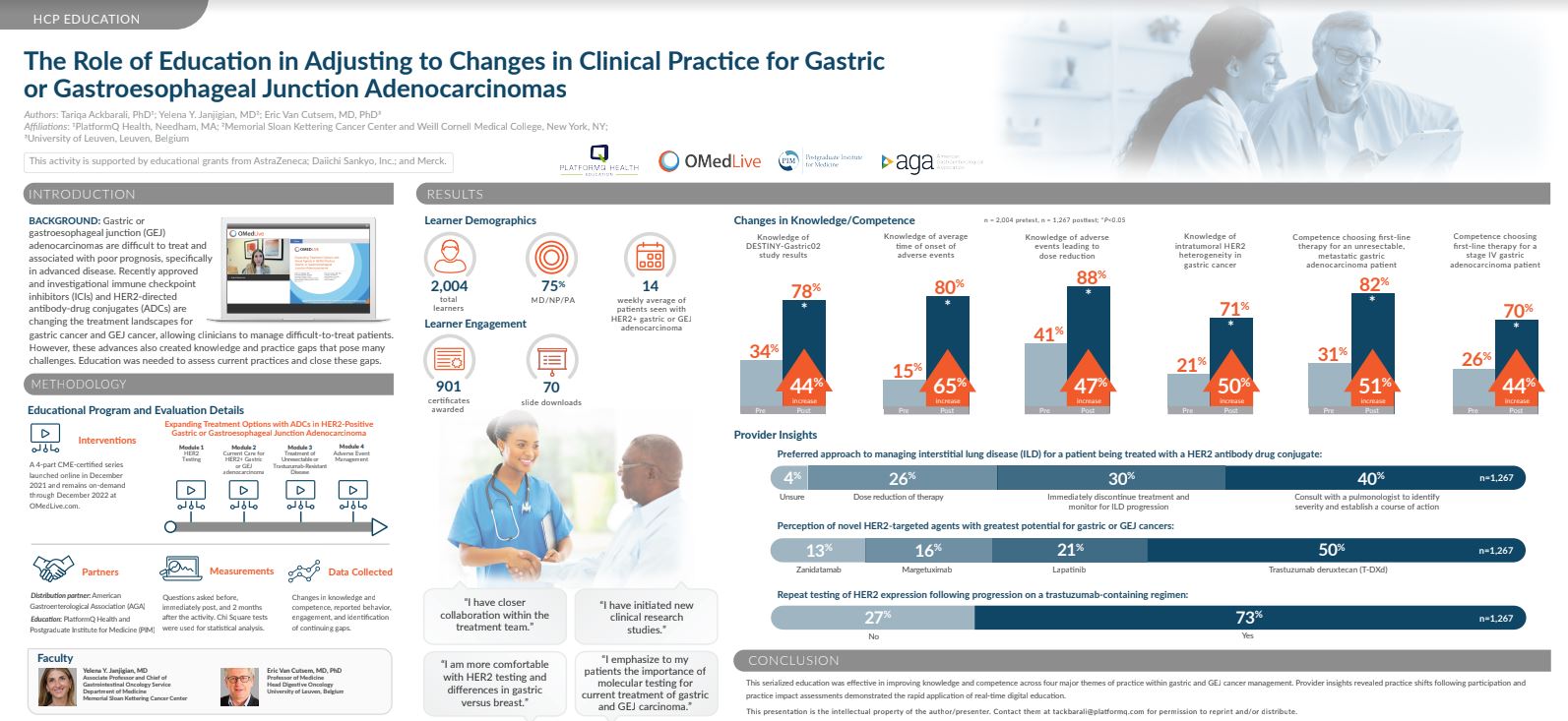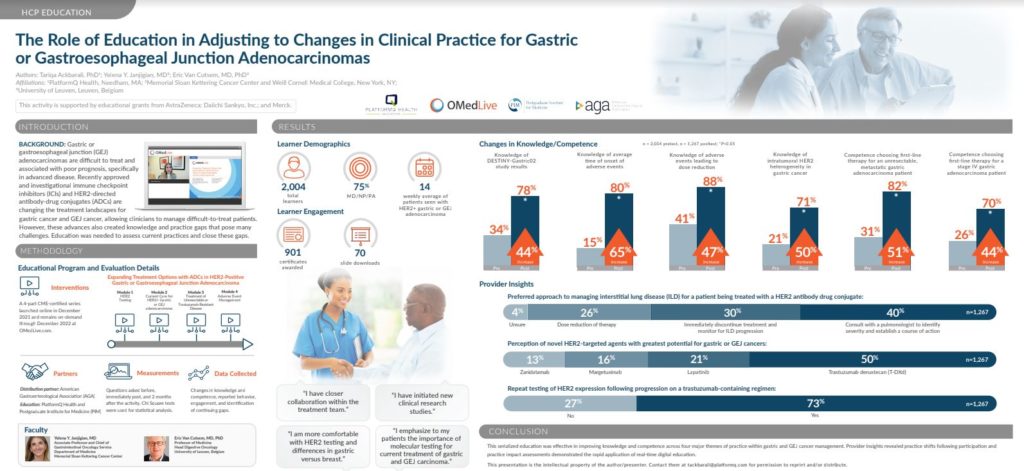Gastric or gastroesophageal junction (GEJ) adenocarcinomas are notoriously difficult to treat, but recently approved immune checkpoint inhibitors and HER2-directed antibody drug conjugates are improving outcomes for patients with these conditions. While these advances are a positive change, they do pose challenges for healthcare providers who need to learn about new regimens and practices.
To support providers in this new treatment landscape, PlatformQ Health led a digital education program featuring faculty from Memorial Sloan Kettering Cancer Center and the University of Leuven. The Gastroenterological Association was a distribution partner, sharing program information with providers in the field.
The four-part CME series launched online in December 2021 and remains on demand through December 2022 on OMedLive.com. Learning modules covered issues such as:
- HER2 testing
- Current care for HER2+ gastric or GEJ adenocarcinoma
- Treatment of resected or Trastuzumab-resistant disease
- Adverse event management
Survey questions were asked before, immediately following and two months after the activity to gauge providers’ retention of learnings. At the 2023 ASGO Gastrointestinal Cancer Symposium, the poster “The Role of Education in Adjusting to Changes in Clinical Practice for Gastric or Gastroesophageal Junction Adenocarcinomas” will be presented to highlight the program outcomes.

Click here to download full poster.
Outcome highlights
Of the 2,004 learners who participated in the session, 75% were MDs, NPs, or PAs. Surveys found a:
- 44% increase in competency after the session in knowledge of DESTINY-Gastric02 study results
- 65% increase re: knowledge of average time to onset of adverse events
- 47% increase in knowledge of adverse events leading to dose reduction
- 50% increase re intratumoral HER2 heterogeneity in gastric cancer
- 51% increase in competency around choosing first-line therapy for unresected metastatic disease
- 44% increase in competency around choosing first- line therapy for a patient with stage
- IV gastric adenocarcinoma
Many providers also shared freeform comments about increased comfort with issues such as HER2 testing as well as closer collaboration with their treatment team. Others emphasized their increased understanding of the importance of molecular testing to determine the appropriate treatment course.
This data shows that the serialized education was effective at improving knowledge around major themes of practice within gastric and GEJ cancer management. Provider insights demonstrated practice shifts following participation in digital education.

